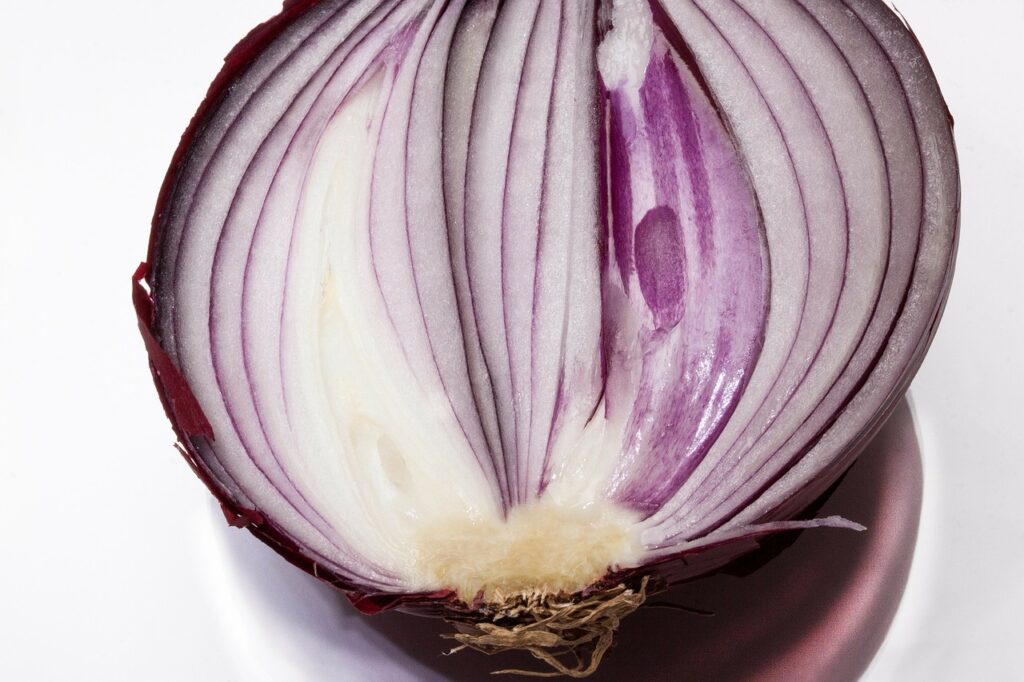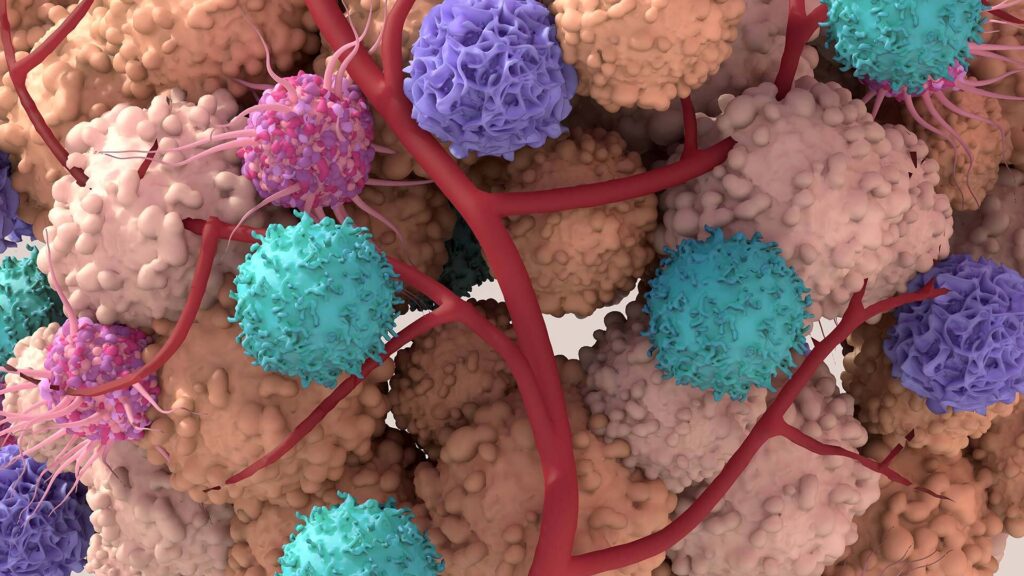Contents
- 1 Introduction to Allium Cepa
- 2 Nutritional Composition of Allium Cepa
- 3 Antioxidant Properties;Allium Cepa
- 4 Anti-inflammatory Benefits;Allium Cepa
- 5 Immune System Support;Allium Cepa
- 6 Heart Health Promotion;Allium Cepa
- 7 Digestive Health Benefits;Allium Cepa
- 8 Potential Cancer Prevention;Allium Cepa
- 9 Allium Cepa for Skin and Hair
- 10 Management of Diabetes;Allium Cepa
- 11 Respiratory Health Improvement;Allium Cepa
- 12 Allium Cepa in Eye Health
- 13 Alleviation of Allergies
- 14 Incorporating Allium Cepa Into Your Diet
- 15 Conclusion
- 16 FAQs (Frequently Asked Questions)
Introduction to Allium Cepa
Allium cepa, commonly known as onion, is a bulbous vegetable that belongs to the Allium genus, which also includes garlic, shallots, and chives. With its distinct pungent flavor and aroma, the onion is a staple ingredient in cuisines worldwide, adding depth and complexity to dishes. Beyond its culinary uses, Allium cepa has been recognized for its medicinal properties for centuries, making it a versatile and valuable addition to both the kitchen and the medicine cabinet.
The onion plant grows underground, producing round or elongated bulbs with multiple layers of thin, papery skin. These bulbs vary in size, color, and flavor depending on the variety, ranging from sweet and mild to pungent and spicy. Onions can be consumed raw, cooked, or processed into various forms such as powder, paste, or extract.

In addition to its culinary versatility, Allium cepa boasts a rich nutritional profile, offering an array of essential vitamins, minerals, and antioxidants. These nutrients contribute to the health-promoting properties of onions, making them a valuable component of a balanced diet.
Throughout history, onions have been revered for their medicinal properties and have been used in traditional medicine to treat various ailments. Modern scientific research has begun to uncover the numerous health benefits of Allium cepa, ranging from its antioxidant and anti-inflammatory properties to its potential role in preventing chronic diseases such as heart disease and cancer.
Overall, Allium cepa is much more than just a flavorful ingredient; it is a powerhouse of nutrition and wellness, offering both culinary delight and therapeutic benefits to those who incorporate it into their diet and lifestyle.
Nutritional Composition of Allium Cepa
Allium Cepa stand out as a nutritional powerhouse, boasting an impressive array of essential nutrients vital for overall health and well-being. Among these nutrients are vitamins, minerals, and antioxidants that contribute to the onion’s status as a nutritious dietary staple.
First and foremost, Allium Cepa pack a punch of vitamin C, a crucial antioxidant that supports immune function, collagen synthesis, and iron absorption. Vitamin B6, another essential nutrient found abundantly in onions, plays a vital role in metabolism, nervous system function, and red blood cell production. Furthermore, onions are a good source of folate, a B-vitamin necessary for DNA synthesis and cell growth, particularly important during pregnancy for fetal development.
In addition to vitamins, onions provide a range of essential minerals, including potassium and manganese. Potassium is essential for maintaining proper fluid balance, nerve function, and muscle contractions, while manganese contributes to bone health, metabolism, and antioxidant defense.

Moreover, onions are low in calories and high in fiber, making them an excellent choice for those looking to maintain a healthy weight or improve digestive health. The high fiber content aids in digestion, promotes feelings of fullness, and helps regulate blood sugar levels, making onions a valuable addition to any balanced diet.
Overall, the nutritional profile of onions underscores their role as a wholesome and nourishing food option. Whether consumed raw, cooked, or incorporated into various dishes, onions offer a wealth of essential nutrients that support overall health and vitality.
Antioxidant Properties;Allium Cepa
The antioxidant properties of Allium cepa, commonly known as onions, are a cornerstone of its numerous health benefits. Onions boast a diverse array of antioxidants, including flavonoids and sulfur compounds, each playing a crucial role in promoting overall health and well-being.
Flavonoids are a group of plant-based compounds with potent antioxidant effects. Quercetin, one of the most abundant flavonoids in onions, stands out for its remarkable antioxidant properties. This powerful antioxidant scavenges harmful free radicals in the body, preventing oxidative damage to cells and tissues. By neutralizing free radicals, quercetin helps protect against chronic diseases such as cardiovascular disease, diabetes, and certain types of cancer.
Allicin is another sulfur compound found in onions renowned for its antioxidant properties. When onions are crushed or chopped, an enzyme called alliinase converts the precursor compound alliin into allicin. This compound is responsible for the characteristic pungent aroma and taste of onions and contributes to their health-promoting effects. Allicin exhibits potent antioxidant, antimicrobial, and anti-inflammatory properties, making it a valuable ally in combating oxidative stress and inflammation in the body.
Furthermore, onions contain other sulfur-containing compounds, such as diallyl sulfide and diallyl disulfide, which contribute to their antioxidant activity. These sulfur compounds work synergistically with flavonoids like quercetin to enhance the overall antioxidant capacity of onions, providing comprehensive protection against oxidative damage and its associated health risks.

The cumulative effect of these antioxidants in onions is profound. By neutralizing free radicals and reducing oxidative stress, onions help mitigate inflammation, support immune function, and promote overall health and longevity. Regular consumption of Allium cepa may therefore confer significant benefits in preventing chronic diseases, improving cellular health, and enhancing overall quality of life.
The potent antioxidant properties of Allium cepa, driven by a rich array of flavonoids and sulfur compounds, are a key factor in its myriad health benefits. By neutralizing free radicals and reducing oxidative stress, onions play a pivotal role in supporting overall health and vitality. Incorporating onions into your diet can be a simple yet effective way to harness the power of antioxidants and safeguard your well-being for years to come.
Anti-inflammatory Benefits;Allium Cepa
Allium Cepa are known for their anti-inflammatory properties, which are essential in combating chronic inflammation, a common underlying factor in health conditions like arthritis and inflammatory bowel diseases (IBD). Flavonoids, particularly quercetin, have been extensively studied for their ability to reduce inflammation by inhibiting the production of inflammatory molecules and modulating immune responses. Sulfur compounds, such as allicin and diallyl sulfide, also possess anti-inflammatory properties, suppressing inflammatory pathways and reducing the release of pro-inflammatory cytokines.
Regular consumption of onions has been associated with a decreased risk of developing inflammatory conditions like arthritis and IBD. Studies have shown that onion extracts and onion-derived compounds can attenuate inflammation in animal models of arthritis and colitis, suggesting their potential therapeutic value in human inflammatory diseases.
Allium Cepa are rich in antioxidants, which further support their anti-inflammatory effects by scavenging free radicals and reducing oxidative stress. These antioxidants help protect cells and tissues from inflammation-induced damage, promoting overall health and well-being.
In conclusion, onions are a valuable dietary addition for individuals seeking relief from inflammation and associated health conditions. By targeting inflammatory pathways and modulating immune responses, Allium Cepa offer a natural and effective means of reducing inflammation throughout the body.
Immune System Support;Allium Cepa
Allium Cepa are known for their immune-boosting properties due to their high concentration of essential nutrients, including vitamin C and antioxidants. These nutrients play a crucial role in fortifying the immune system and enhancing the body’s ability to fight off infections and illnesses.
Vitamin C, a potent antioxidant, neutralizes harmful molecules that can compromise immune function and leave the body vulnerable to infections. It also stimulates the production and activity of white blood cells, the frontline defenders of the immune system. Onions also contain flavonoids like quercetin and sulfur compounds like allicin, which work synergistically to enhance immune function by reducing oxidative stress and inflammation. These antioxidants create an environment conducive to optimal immune function, enabling the body to mount a robust defense against infections and diseases.

Allium Cepa also possess antimicrobial properties, which can help inhibit the growth of harmful bacteria, viruses, and fungi. Compounds like allicin exhibit potent antimicrobial activity, making onions a valuable ally in combating microbial infections and supporting immune health. Regular consumption of onions, whether raw, cooked, or in extract form, can serve as a natural and effective strategy for strengthening the immune system and enhancing resilience against infections and illnesses. Incorporating onions into a balanced diet provides a convenient and flavorful way to harness the immune-boosting benefits of vitamin C and antioxidants, supporting overall health and vitality.
Heart Health Promotion;Allium Cepa
Onions, rich in sulfur compounds, can significantly improve heart health and reduce the risk of cardiovascular diseases. These compounds, found in Allium cepa, help relax blood vessels, promote vasodilation, and lower blood pressure, which is a major risk factor for heart attacks and strokes. Onions also help improve cholesterol levels, as they inhibit cholesterol production in the liver and enhance cholesterol clearance from the bloodstream. Regular consumption of onions can lead to lower LDL cholesterol levels and a more favorable cholesterol profile, reducing the risk of cardiovascular events.
Sulfur compounds in onions also support the health and function of blood vessels, protecting endothelial cells from damage, promoting nitric oxide production, and enhancing blood vessel elasticity and dilation. This leads to better circulation, lower blood pressure, and reduced risk of cardiovascular complications. Onions can be added to salads, sandwiches, soups, stir-fries, or used as a flavoring agent in various dishes. Whether consumed raw or cooked, onions offer a convenient and flavorful way to reap the cardiovascular benefits of sulfur compounds. By making onions a regular part of your diet, you can take proactive steps towards promoting heart health and reducing the risk of cardiovascular diseases.
Digestive Health Benefits;Allium Cepa
Allium Cepa are rich in fiber, which is essential for maintaining digestive health. They contain both soluble and insoluble fiber, which work together to support digestive function and maintain a healthy gastrointestinal system. Soluble fiber, found in onions, dissolves in water to form a gel-like substance in the digestive tract, softening stool and adding bulk to feces. This helps prevent constipation and alleviates discomfort associated with irregularity. Insoluble fiber, on the other hand, adds bulk to stool and speeds up its passage through the digestive system, acting as a natural laxative.
Allium Cepa also contain prebiotics, which nourish beneficial gut bacteria in the colon. Prebiotics serve as food for probiotics, the “good” bacteria that reside in the gut and support digestive health. Consuming onions and other prebiotic-rich foods can support the growth and diversity of beneficial gut bacteria, enhancing digestive health and immune function.
Incorporating onions into your diet is a simple and delicious way to reap the digestive benefits of fiber and prebiotics. Onions can be consumed raw in salads, sautéed in stir-fries, or roasted as a side dish. By making onions a regular part of your meals, you can support a healthy gut microbiome and enjoy improved digestion and gastrointestinal function.
Potential Cancer Prevention;Allium Cepa
Studies have shown that onions, or Allium cepa, may have protective effects against certain types of cancer, making them a valuable addition to a cancer-preventive diet. The antioxidants and sulfur compounds in onions, such as quercetin and flavonoids, neutralize free radicals and oxidative stress, which are implicated in cancer initiation and progression. These antioxidants scavenge harmful free radicals, preventing damage to DNA and cellular structures and reducing the risk of mutations that can lead to cancerous cell growth.
Sulfur compounds, such as allicin and diallyl sulfide, have potent anticancer properties, inhibiting cancer cell growth and survival. They can induce apoptosis, inhibit cancer cell proliferation, and suppress the formation of blood vessels that supply tumors with nutrients and oxygen, a process known as angiogenesis.

Allium Cepa have been shown to reduce the risk of colorectal cancer, gastric cancer, and prostate cancer. They inhibit the growth of colorectal cancer cells and suppress the development of precancerous lesions in the colon. Additionally, onions may offer protection against prostate cancer, the most prevalent cancer in men, by demonstrating anti-proliferative effects on prostate cancer cells.
Incorporating onions into a balanced and varied diet can confer significant benefits in reducing the risk of cancer development and promoting overall health. Consuming onions raw, cooked, or in extract form offers a convenient and flavorful way to harness their anticancer properties and support cancer prevention efforts.
Allium Cepa for Skin and Hair
Allium Cepa are not only beneficial for culinary purposes but also offer significant skin and hair health benefits. When applied topically, onion extract, derived from Allium cepa bulbs, can improve skin tone and texture by containing bioactive compounds like flavonoids and sulfur compounds. These compounds promote collagen production and skin regeneration, leading to smoother, more radiant skin with improved elasticity and firmness.
Allium Cepa extract also has anti-inflammatory and antimicrobial properties, making it effective in combating acne and reducing inflammation associated with skin conditions like acne vulgaris. The sulfur compounds in onions help cleanse the skin and unclog pores, preventing acne lesions and promoting clearer, healthier skin.
Onion extract also promotes hair growth and improves hair quality by stimulating blood circulation to the scalp, nourishing hair follicles, and promoting hair growth. It also helps maintain a healthy scalp environment, preventing scalp conditions that can impede hair growth.

Onion antioxidants, such as quercetin and vitamin C, play a crucial role in protecting the skin from damage caused by free radicals. These antioxidants neutralize free radicals, preventing oxidative stress and preserving the skin’s youthful appearance. By incorporating onions into your skincare routine or haircare regimen, you can harness their potent properties and enjoy transformative effects on your skin and hair.
Management of Diabetes;Allium Cepa
Research suggests that onions may play a beneficial role in the management of diabetes by helping regulate blood sugar levels. The sulfur compounds present in Allium cepa, commonly known as onions, have been found to offer several advantages for individuals with diabetes, including increased insulin sensitivity and reduced insulin resistance.
Insulin is a hormone produced by the pancreas that plays a crucial role in regulating blood sugar levels by facilitating the uptake of glucose from the bloodstream into cells for energy production. In individuals with diabetes, either the body does not produce enough insulin (type 1 diabetes) or the cells become resistant to the effects of insulin (type 2 diabetes), leading to elevated blood sugar levels and impaired glucose metabolism.
Studies have indicated that the sulfur compounds found in onions, such as allyl propyl disulfide and diallyl trisulfide, possess insulin-sensitizing properties, meaning they enhance the sensitivity of cells to insulin’s actions. By improving insulin sensitivity, onions help facilitate the uptake of glucose by cells, thereby lowering blood sugar levels and improving glycemic control.
Furthermore, onions have been shown to reduce insulin resistance, a hallmark feature of type 2 diabetes characterized by decreased responsiveness of cells to insulin. Insulin resistance impairs glucose uptake by cells, leading to elevated blood sugar levels and increased insulin production by the pancreas. The sulfur compounds in onions help mitigate insulin resistance by modulating insulin signaling pathways and enhancing cellular glucose uptake, ultimately improving glucose utilization and reducing reliance on insulin secretion.
In addition to their effects on insulin sensitivity and resistance, onions contain bioactive compounds that inhibit the activity of enzymes involved in carbohydrate digestion and absorption. By slowing down the breakdown of carbohydrates into glucose in the digestive tract, onions help prevent rapid spikes in blood sugar levels after meals, promoting more stable and controlled blood glucose levels throughout the day.
Overall, incorporating onions into the diet may offer benefits for individuals with diabetes by helping regulate blood sugar levels and improving insulin sensitivity and resistance. Whether consumed raw, cooked, or in extract form, onions provide a flavorful and versatile option for supporting diabetes management efforts and promoting overall metabolic health. However, it’s essential to consult with a healthcare professional for personalized dietary recommendations and diabetes management strategies tailored to individual needs.
Respiratory Health Improvement;Allium Cepa
Onions are a powerful natural remedy for respiratory health, offering significant benefits due to their anti-inflammatory and antimicrobial properties. They help reduce inflammation in the respiratory tract, which is a common feature of respiratory conditions like asthma and bronchitis. Onions suppress inflammatory pathways, reducing swelling and irritation in the airways, thus promoting easier breathing. They also possess antimicrobial properties, acting as natural expectorants that promote the clearance of mucus from the respiratory tract. This is particularly beneficial for individuals with conditions like bronchitis and sinusitis, where excessive mucus production can lead to congestion and difficulty breathing.
Onions can be consumed in various forms, including raw, cooked, and extract forms. Raw onions retain higher levels of bioactive compounds, offering more potent respiratory benefits. Cooked onions can still provide valuable nutrients and therapeutic effects when included in soups, stews, and other dishes.
In summary, onions are a natural and effective remedy for supporting respiratory health and alleviating symptoms of respiratory conditions. Their anti-inflammatory, antimicrobial, and expectorant properties make them a valuable addition to a balanced diet and a holistic approach to respiratory wellness. By incorporating onions into daily meals, individuals can take proactive steps towards maintaining healthy respiratory function and overall well-being.
Allium Cepa in Eye Health
Onions, are not only a delicious addition to culinary dishes but also have significant benefits for eye health. They are rich in antioxidants, including flavonoids like quercetin and sulfur compounds like allicin, which neutralize harmful free radicals and reduce oxidative stress in the eyes. Oxidative stress is a major contributor to age-related eye diseases like macular degeneration and cataracts. Onions contain specific antioxidants that are particularly beneficial for eye health, such as quercetin, which has anti-inflammatory and anti-angiogenic properties, helping reduce inflammation and inhibit the formation of abnormal blood vessels in the retina. This helps preserve vision and reduces the risk of vision loss associated with macular degeneration.
Sulfur compounds in onions promote proper blood circulation, reducing the risk of vascular-related eye diseases. They improve blood flow to the eyes, ensuring that ocular tissues receive an adequate supply of oxygen and nutrients, supporting overall eye function and reducing the risk of vascular complications that can lead to vision impairment.
Incorporating onions into your diet as part of a balanced and varied eating pattern can help support eye health and reduce the risk of age-related eye conditions. Consuming onions raw, cooked, or in extract form offers a convenient and flavorful way to reap the antioxidant and anti-inflammatory benefits for vision health.
Alleviation of Allergies
Onions are known for their potential to alleviate allergic reactions and associated symptoms, such as congestion and inflammation, due to their bioactive compounds, including quercetin. Quercetin, a flavonoid found in onions, is known for its anti-inflammatory and antioxidant properties. It stabilizes mast cells, which are immune cells involved in allergic responses, which release histamine and other inflammatory mediators. This prevents the release of these mediators, reducing inflammation and alleviating allergy symptoms. Quercetin also modulates immune responses and inhibits the production of pro-inflammatory cytokines, which are involved in orchestrating allergic reactions.

Other compounds in onions, such as sulfur compounds and polyphenols, also exhibit anti-allergic properties. Studies have shown the efficacy of onion extracts or onion-derived compounds in reducing allergic responses in animal models and human subjects. While further research is needed to fully understand the mechanisms underlying these effects, evidence suggests that onions may offer a natural and effective remedy for managing allergic reactions and symptoms. Incorporating onions into a balanced diet can provide a convenient and flavorful way to reap the anti-allergic benefits of quercetin and other bioactive compounds. However, individuals with known allergies to onions should consult a healthcare professional before incorporating onions into their diet for allergy management.
Incorporating Allium Cepa Into Your Diet
Incorporating Allium cepa, or onions, into your diet is easy and offers a multitude of health benefits. There are numerous delicious ways to enjoy onions and reap their nutritional advantages. Here are some simple and versatile ways to incorporate onions into your meals:
- Raw Onions: Raw onions add a crunchy texture and bold flavor to dishes. You can finely chop or slice raw onions and add them to salads, sandwiches, wraps, and salsas for an extra burst of flavor and nutrition.
- Cooked Dishes: Onions are a staple ingredient in cooked dishes, adding depth and richness to soups, stews, curries, and stir-fries. Start by sautéing diced onions in olive oil or butter until they become soft and translucent, then add them to your favorite recipes for added flavor and aroma.
- Caramelized Onions: Caramelized onions are sweet and savory, making them a delicious topping for burgers, sandwiches, pizzas, and grilled meats. To caramelize onions, cook thinly sliced onions over low heat until they turn golden brown and develop a rich, caramelized flavor.
- Onion Powder: Onion powder is a convenient option for seasoning various dishes, providing the flavor of onions without the texture. Sprinkle onion powder over meats, vegetables, soups, sauces, and marinades to add depth of flavor and enhance the taste of your favorite recipes.
- Onion Extract: Onion extract is another convenient option for incorporating the health benefits of onions into your diet. Add onion extract to dressings, sauces, marinades, and dips for a subtle onion flavor and an extra boost of nutrients.
- Pickled Onions: Pickled onions are tangy and flavorful, making them a versatile condiment for sandwiches, tacos, salads, and charcuterie boards. You can make your own pickled onions by soaking thinly sliced onions in a mixture of vinegar, sugar, and spices until they become tender and tangy.
- Onion Soup: Onion soup is a classic dish that highlights the natural sweetness of onions. Simmer sliced onions in broth until they become soft and caramelized, then serve the soup topped with melted cheese and crusty bread for a comforting and nourishing meal.
By incorporating Allium cepa into your diet in various forms, you can enjoy its health benefits while adding flavor and depth to your favorite dishes. Whether raw, cooked, powdered, or pickled, onions offer a versatile and delicious way to enhance the taste and nutritional value of your meals. Experiment with different cooking methods and recipes to discover new and exciting ways to enjoy the many benefits of onions in your diet.
Conclusion
Allium cepa, or onions, is a nutritional powerhouse with numerous health benefits due to their nutrient-rich composition and potent medicinal properties. They are known for their ability to strengthen the immune system, promoting overall immune function and reducing the risk of infections. Onions also have a positive impact on heart health, as their sulfur compounds and antioxidants help regulate blood pressure, improve cholesterol levels, and enhance blood vessel function, reducing the risk of cardiovascular diseases like heart attack and stroke. This contributes to longevity and vitality, allowing individuals to lead healthier and more active lives.
Onions also have beneficial effects on digestive function due to their high fiber content and prebiotic properties. The fiber in onions promotes regular bowel movements, prevents constipation, and supports gut health by nourishing beneficial gut bacteria. They also contain compounds that aid in the digestion and absorption of nutrients, ensuring optimal nutrient utilization and gut function.
Incorporating more onions into your meals can be a simple yet effective strategy for enhancing overall health and well-being. They offer a versatile and delicious way to reap their numerous health benefits, making onions a valuable addition to a balanced diet and a cornerstone of holistic health maintenance. By making onions a staple ingredient in your culinary repertoire, you can harness their transformative effects on your health and embark on a healthier and happier lifestyle.
FAQs (Frequently Asked Questions)
- Can onions help lower cholesterol levels?
- Yes, onions contain compounds that have been shown to lower cholesterol levels and improve heart health.
- Are there any side effects associated with consuming onions?
- While onions are generally safe for most people, some individuals may experience digestive discomfort or allergic reactions.
- How should onions be stored to maintain freshness?
- Onions should be stored in a cool, dry, and well-ventilated place away from sunlight. Avoid storing onions near potatoes, as they can cause onions to spoil faster.
- Can onions help with hair loss?
- Some people believe that applying onion juice to the scalp can promote hair growth and reduce hair loss, although more research is needed to confirm its effectiveness.
- Are there any alternative ways to consume onions for those who dislike their taste?
- Yes, for individuals who dislike the taste of raw onions, cooked onions can be added to dishes to impart flavor without the strong onion taste.

